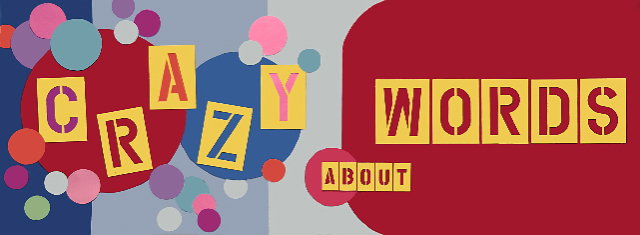Poor little orphans
Joe Mc Kay’s
“Crazy About Words”
… toasting our language since 2003!
It’s a sure sign you’re crazy… about words, at least, when you come to think of them as people. I began to realize this about myself some time back as I was checking out the etymology of bamboozled. I was surprised that it was as old as 1703, but floored when I saw that it was categorized as “origin unknown.” How could etymologists not know how such a nifty word originated?
Sometime later, I saw that bludgeon (1868) was in that same category, then flirt (1877) and punk (1596). I wrote them down on a sheet of paper and printed “origin unknown” at the top. I felt like a character in a Dickens novel, a benevolent one, gathering in orphans from the street. Now, every time I come across a word with that label, or “origin uncertain,” I feel parental and add it to my list.
Most words are like children whose roots can be traced as pedigrees are … axiomatic from Greek, obsequious from Latin, maladroit from French, galore from Irish Gaelic, or assassin from Arabic, to list a few. They come to us from long lines of traceable language.
Or they are new words, easily traceable in this Google era, e.g., app (short for application and the 2010 “word of the year”), tweet (a 2009 winner which defines a message containing no more than 140 characters and delivered by Twitter), and locavore (a person who eats only food grown and produced within a certain number of miles of his home). No etymologist of the future, with the prowess of the Internet at his fingertips, will fail to detect the precise origin of words like these.
Actually, the more I get to know of etymologists’ exacting work, the more I appreciate what they have been able to trace with certainty. E.g., genro (a group of elder Japanese statesmen, formerly advisers to the emperor) originated as two words in Ancient Mandarin. I am in awe of the lexicological digging involved here; it’s akin to archeology.
Here are a few surprises that defied etymologists in the first two-thirds of the twentieth century: chad (“a bit of paper punched out from a data card.” It became world famous in the 2000 US presidential election; it’s been traced to 1947, but how did the word come about? … perhaps from the Scots “gravel”… “origin uncertain”); copacetic (“very satisfactory,”1919… a fun word; I expected it to be of Greek origin); gimmick (“an ingenious or novel mechanical device, gadget,” 1926… you could have an interesting time with fellow word lovers making up an etymology for it!) They each have a special place in my heart.
Another favorite is quaff (1529) thought perhaps to be imitative. I’ve tried, even wiped my lips with the back of my hand, but quaff after quaff, I can’t get myself to sound like the word.
Simoleon (1895-1900) is a cool slang word for a dollar. How I wish we knew its origins. It’s bound to be interesting.
At the top of my list is acne. While not exactly of unknown origin, it had a peculiar beginning, in that it was the result of a manuscript error, aka “typo.” “Acme” was intended, after “the head of a pimple” : ( … but “acne” stuck (and most of us were stuck with it at some point in our young lives!). So it’s fitting that the last word in my alphabetical list of “origins unknown,” zit, originated in 1966, the last year that etymologists could not detect a word’s origin. Since then, the huge computer databases available make it virtually impossible for a word to be born without a birth certificate. It marks the end of an etymological era.
Comments, questions, or suggestions welcome at Cubby#94 or at crazyaboutwords@gmail.com






